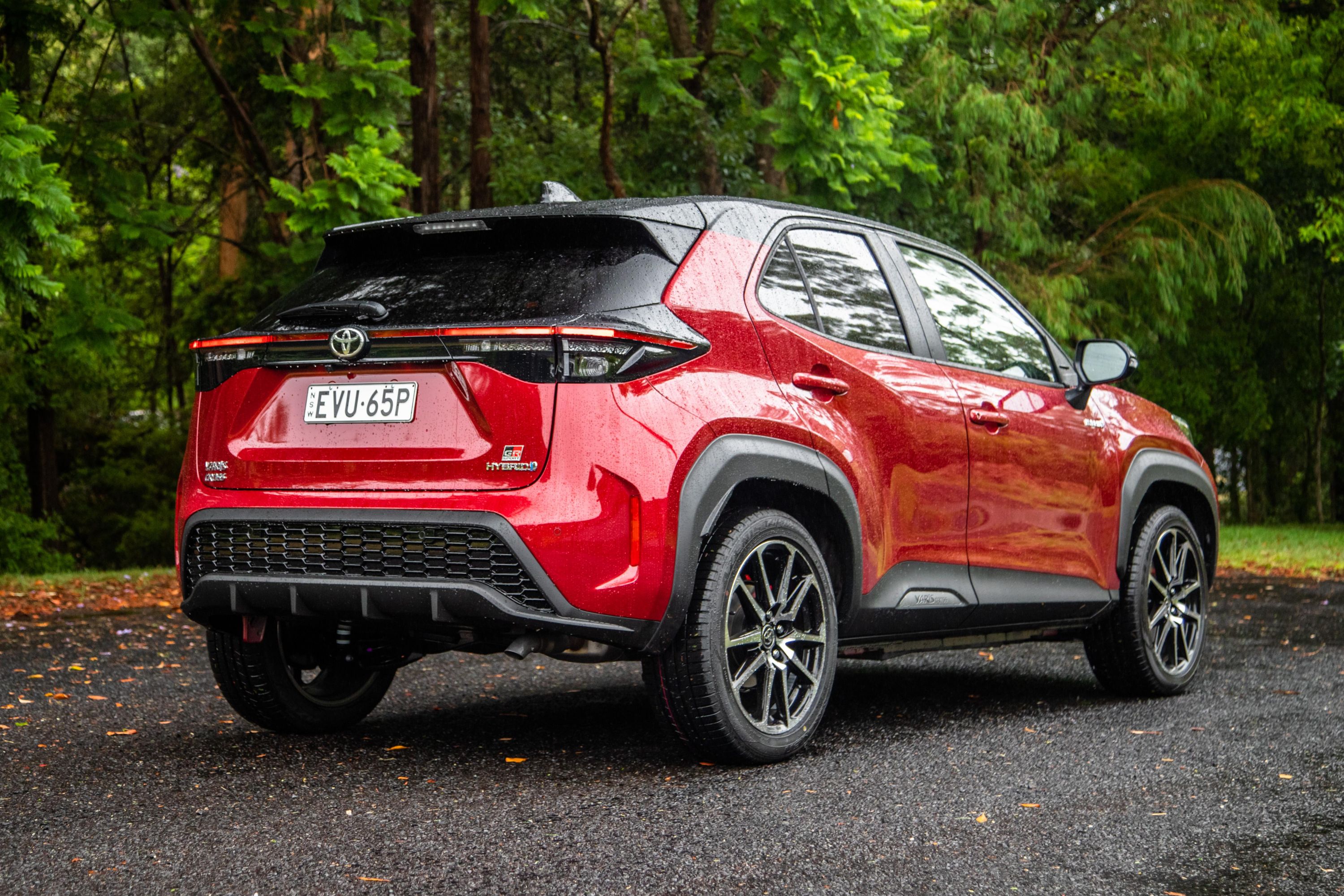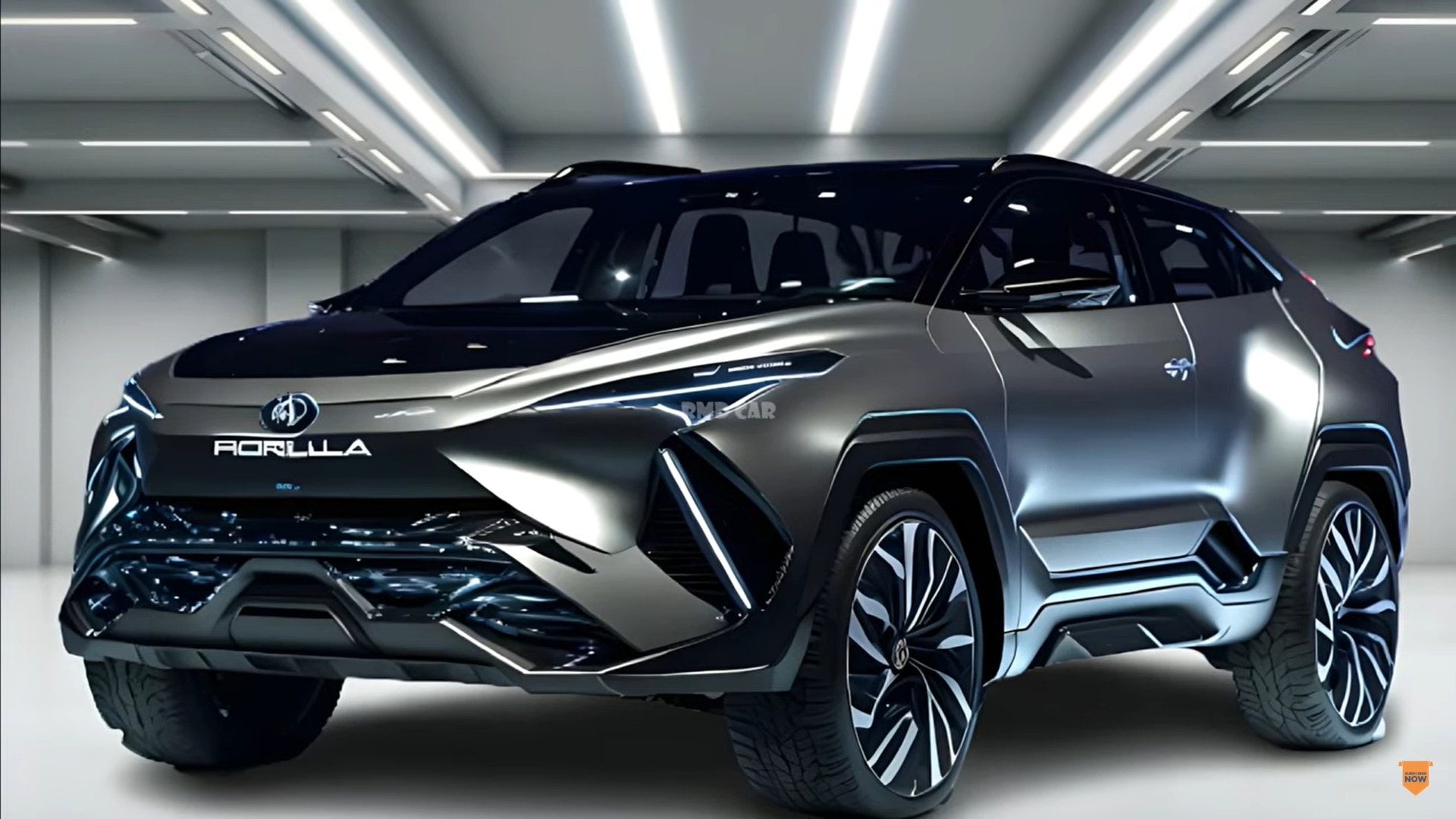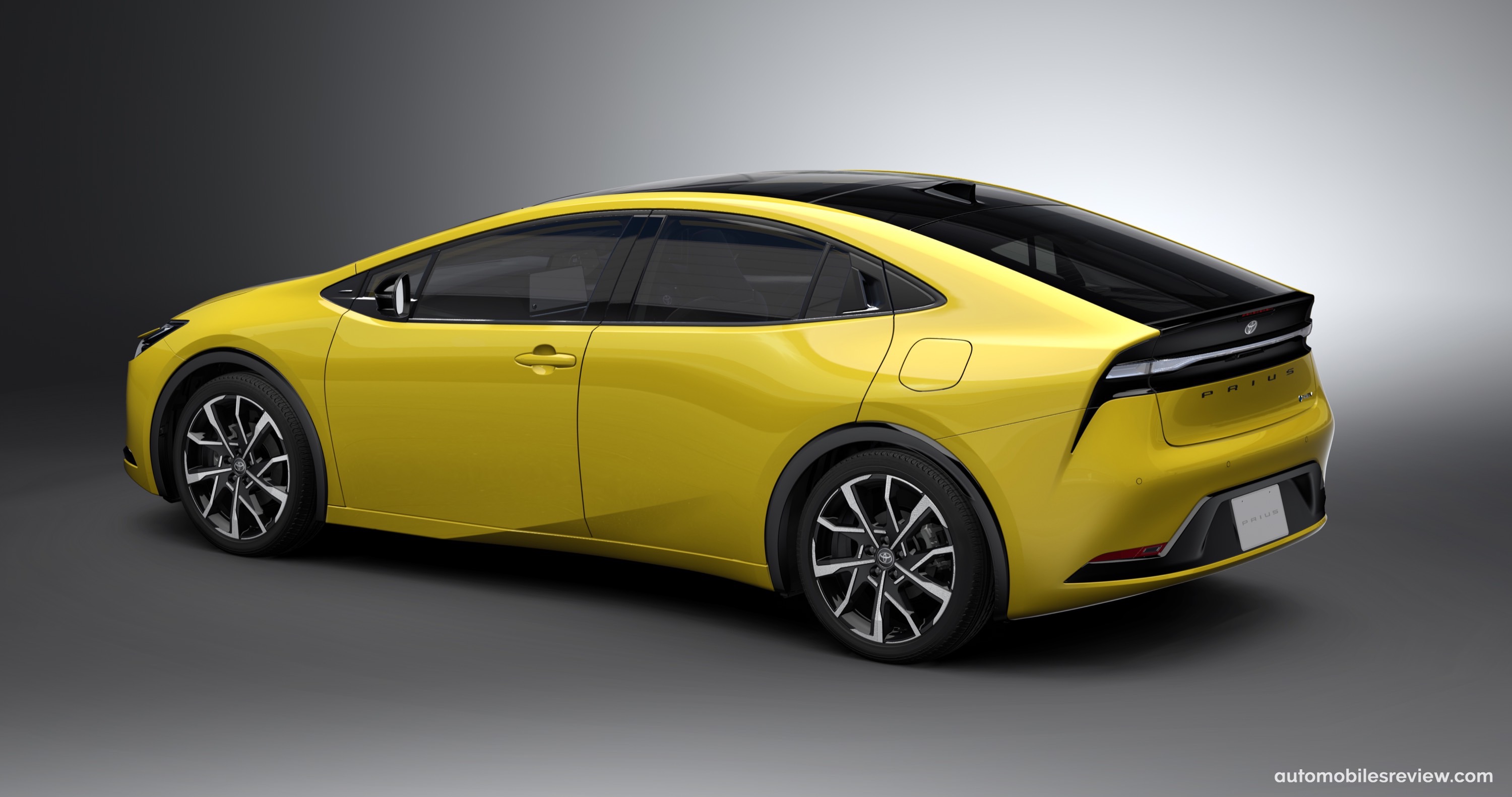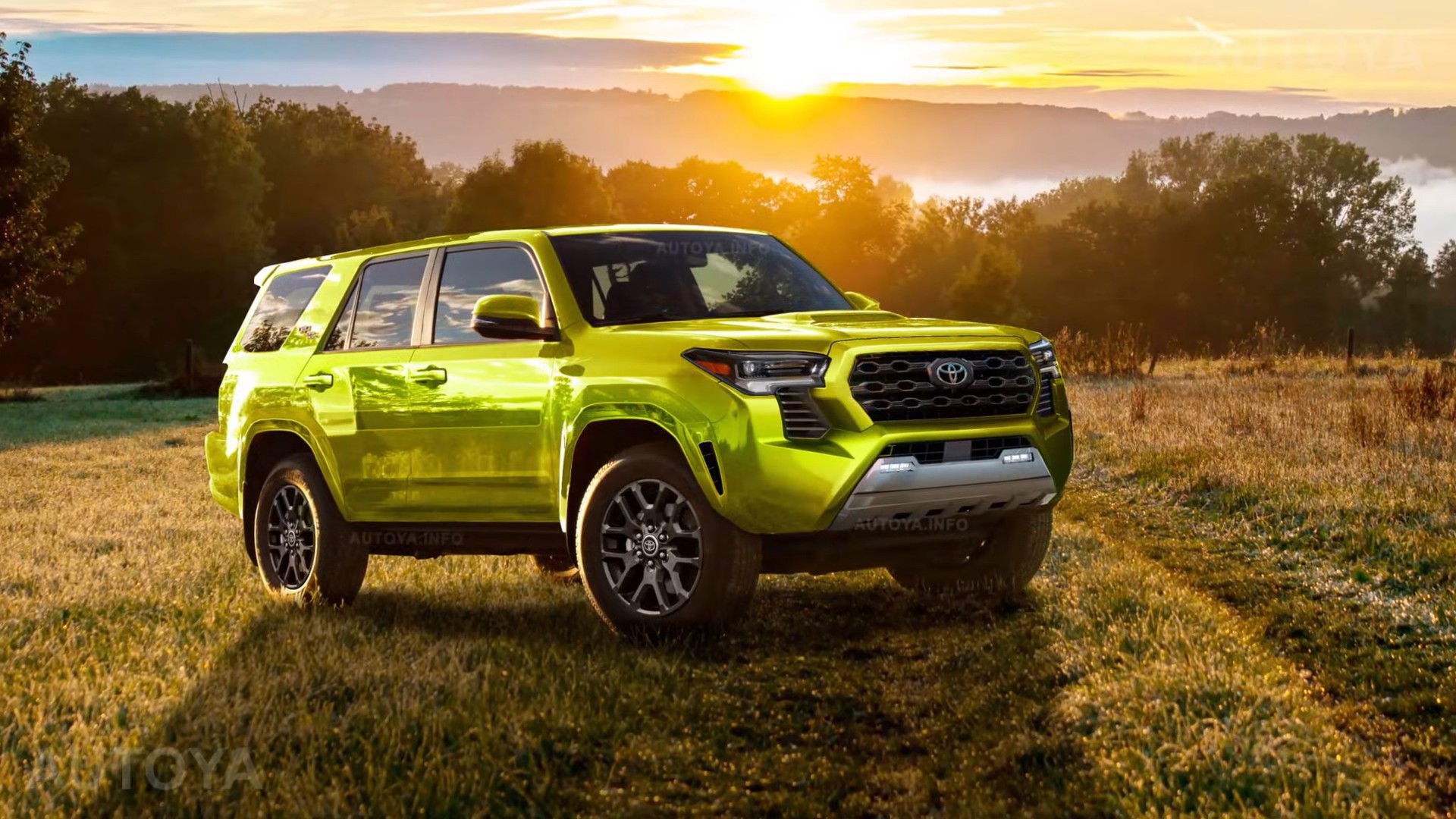Toyota Brands: A Comprehensive Guide to a Global Automotive Empire types.truckstrend.com
Toyota is a name synonymous with reliability, innovation, and global automotive leadership. Yet, to understand the true breadth and depth of Toyota’s influence, one must look beyond the familiar "Toyota" marque to its vast portfolio of brands. "Toyota Brands" refers to the diverse family of companies and automotive divisions under the umbrella of Toyota Motor Corporation (TMC), each serving distinct markets, catering to specific customer needs, and contributing to the conglomerate’s unparalleled success. This intricate web of brands is a testament to Toyota’s strategic foresight, allowing it to dominate various segments from entry-level compacts to ultra-luxury vehicles, and even venturing into non-automotive sectors, cementing its position as a true global industrial powerhouse.
The Core: Toyota Passenger Vehicles
Toyota Brands: A Comprehensive Guide to a Global Automotive Empire
At the heart of the empire lies the flagship Toyota brand itself, the foundation upon which the entire conglomerate is built. Globally recognized and revered, the Toyota brand is celebrated for its unwavering commitment to quality, durability, and reliability (QDR). For decades, Toyota vehicles have been a benchmark for practical, efficient, and long-lasting transportation.
Key Information & Benefits:
- Reliability & Durability: Toyota vehicles are renowned for their low maintenance costs and impressive longevity, often retaining strong resale values.
- Fuel Efficiency: A pioneer in hybrid technology with the Prius, Toyota continues to lead in developing fuel-efficient gasoline and hybrid powertrains across its lineup.
- Innovation: Beyond hybrids, Toyota is investing heavily in hydrogen fuel cell technology (Mirai), electric vehicles (bZ4X), and advanced safety features (Toyota Safety Sense).
- Diverse Lineup: From compact sedans like the Corolla to family SUVs like the RAV4 and Highlander, rugged trucks like the Tacoma and Tundra, and performance-oriented GR models, Toyota offers a vehicle for virtually every need and budget.

Practical Advice: When considering a Toyota, think about your primary needs: daily commuting (Corolla, Camry, Prius), family adventures (RAV4, Highlander, Sienna), off-roading (4Runner, Tacoma, Tundra), or pure utility. Their reputation for low running costs makes them an excellent long-term investment.
Luxury and Performance: Lexus
Established in 1989, Lexus is Toyota’s dedicated luxury vehicle division, created to challenge established European luxury brands like Mercedes-Benz and BMW. Lexus quickly carved out its niche by offering unparalleled refinement, quietness, and customer service, combined with Toyota’s legendary reliability.
Key Information & Benefits:
- Refined Luxury: Lexus interiors are known for their meticulous craftsmanship, high-quality materials, and serene cabin environments.
- Smooth Performance: While some models offer exhilarating performance (e.g., LC 500), the brand generally prioritizes a smooth, quiet, and comfortable ride.
- Hybrid Leadership: Lexus offers a wide array of luxury hybrid vehicles, combining fuel efficiency with premium performance.
- Exceptional Customer Service: Lexus is consistently ranked highly for customer satisfaction and ownership experience.


Practical Advice: If you desire luxury without sacrificing reliability, Lexus is an ideal choice. Models like the RX SUV and ES sedan offer a blend of comfort and practicality, while the LS sedan provides flagship luxury. For those seeking performance, the F-Sport and dedicated F models offer a more dynamic driving experience.
Budget and Youth-Oriented: Daihatsu
Daihatsu Motor Co., Ltd. is a Japanese automobile manufacturer that has been a wholly-owned subsidiary of Toyota since 2016. Daihatsu primarily focuses on the production of kei cars (a Japanese vehicle category for the smallest highway-legal passenger cars), compact cars, commercial vehicles, and internal combustion engines. Its market is predominantly in Asia, particularly Japan and Southeast Asia.
Key Information & Benefits:
- Compact & Efficient: Daihatsu excels in producing highly compact and fuel-efficient vehicles, perfectly suited for congested urban environments.
- Affordability: Daihatsu vehicles are generally more budget-friendly than their Toyota counterparts, making them accessible in emerging markets.
- Specialization in Kei Cars: They are masters of maximizing interior space within strict kei car dimensions, offering surprising practicality.
Important Considerations: Daihatsu vehicles are not widely available in Western markets. Their primary purpose is to address specific market needs for small, economical vehicles, often with a focus on urban mobility.
Commercial and Heavy Duty: Hino Motors
Hino Motors, Ltd. is a leading Japanese manufacturer of commercial vehicles and diesel engines, and a subsidiary of Toyota. Hino specializes in trucks, buses, and other heavy-duty vehicles, playing a crucial role in logistics and public transportation worldwide.
Key Information & Benefits:
- Durability & Strength: Hino trucks and buses are built to withstand demanding commercial use, known for their robustness and longevity.
- Diverse Applications: From light-duty delivery trucks to heavy-duty tractor units and city buses, Hino offers solutions for a wide range of commercial needs.
- Global Presence: Hino vehicles are vital components of transportation infrastructure in numerous countries across Asia, Australia, and North America.
Challenges & Solutions: The commercial vehicle sector faces increasing pressure for emissions reduction. Hino is actively developing hybrid and electric commercial vehicles to meet these environmental challenges, leveraging Toyota’s expertise in electrification.
Specialized Vehicles and Niche Markets
Toyota’s brand strategy extends to highly specialized and niche segments, demonstrating its adaptability and commitment to diverse market demands.
Ranz
Ranz is a brand created in China as part of a joint venture between Toyota and GAC (Guangzhou Automobile Group). Launched in 2013, Ranz focuses specifically on developing and manufacturing electric vehicles (EVs) for the Chinese market. This brand highlights Toyota’s strategy of creating localized brands to address specific market regulations and consumer preferences, particularly in the rapidly evolving EV landscape.
Scion (Historical)
While discontinued in 2016, Scion provides an interesting case study in Toyota’s brand strategy. Launched in 2003, Scion was Toyota’s attempt to capture a younger, urban demographic in North America. It offered unique styling, simplified trim levels (monospec), aggressive pricing, and a focus on customization.
Challenges & Lessons Learned: Despite initial success, Scion struggled with brand identity and sales momentum as its target demographic aged. Many of its popular models (like the tC, FR-S, and iA/iM) were eventually rebadged as Toyota models, demonstrating the flexibility of Toyota’s core brand to absorb successful concepts. Scion’s legacy lies in informing Toyota’s approach to youth marketing and product development.
GR (Gazoo Racing)
Gazoo Racing (GR) isn’t a standalone brand in the same vein as Lexus or Daihatsu, but rather Toyota’s high-performance sub-brand. Born from Toyota’s extensive motorsports activities, GR aims to infuse the thrill of racing into street-legal vehicles.
Key Information:
- Performance Focus: GR models (e.g., GR Supra, GR Corolla, GR86) are engineered for driving enthusiasts, featuring enhanced powertrains, suspension, and aerodynamic designs.
- Motorsports Heritage: The technology and insights gained from Toyota’s participation in races like the World Endurance Championship and World Rally Championship are directly applied to GR vehicles.
- Brand Enhancement: GR elevates Toyota’s image, proving its capability to build exciting and engaging driver’s cars alongside its reputation for reliability.
Non-Automotive Brands and Subsidiaries
Toyota’s influence extends far beyond passenger cars, trucks, and buses, demonstrating its vast industrial footprint.
- Toyota Industries Corporation (TICO): The original company from which Toyota Motor Corporation spun off. TICO is a diversified manufacturer of materials handling equipment (forklifts are a major product), textile machinery, automotive components (like car air-conditioning compressors), and industrial vehicles. This highlights Toyota’s origins in manufacturing beyond automobiles.
- Toyota Financial Services (TFS): Provides automotive financing, leasing, and insurance services for Toyota and Lexus customers worldwide, making vehicle ownership more accessible.
- Toyota Housing Corporation: Engaged in the construction and sales of prefabricated homes, primarily in Japan, reflecting Toyota’s commitment to quality and efficiency across various sectors.
Synergies and Strategy Behind Multi-Branding
Toyota’s multi-brand strategy is not merely a collection of disparate entities but a carefully orchestrated ecosystem designed for maximum market penetration and efficiency.
Benefits:
- Market Segmentation: Each brand targets a specific demographic or market segment, minimizing internal competition and maximizing overall market share (e.g., Toyota for mainstream, Lexus for luxury, Daihatsu for budget).
- Risk Diversification: Reliance on multiple revenue streams across different industries and geographies reduces overall business risk.
- Technology Sharing: Core technologies, such as hybrid powertrains, safety systems, and manufacturing processes, can be shared and adapted across brands, leading to cost efficiencies and accelerated innovation.
- Brand Loyalty: Different brands foster distinct identities and loyal customer bases, contributing to the broader Toyota family’s strength.
- Global Reach: The diverse portfolio allows Toyota to navigate varying regulations, consumer preferences, and economic conditions in different regions.
Challenges & Solutions:
- Brand Differentiation: Maintaining clear distinctions between brands (e.g., Toyota vs. Lexus) is crucial to prevent cannibalization. This is achieved through unique design languages, feature sets, and marketing strategies.
- Maintaining Quality Standards: Ensuring that the high standards of QDR are consistent across all brands, regardless of their price point or market, is paramount. Toyota’s rigorous production system (TPS) plays a key role here.
- Managing Discontinuation: The decision to discontinue a brand like Scion highlights the challenge of adapting to changing market dynamics and knowing when to consolidate resources.
Practical Advice and Actionable Insights for the Reader
Understanding the full scope of Toyota’s brands offers valuable insights:
- For Consumers: If you’re looking for a new vehicle, knowing Toyota’s brand hierarchy helps you narrow down choices. If reliability and value are key, the main Toyota brand is excellent. If you desire luxury and exceptional service, Lexus is your path. For urban efficiency on a budget (in relevant markets), Daihatsu fits the bill. For commercial needs, Hino is the specialist.
- For Investors: Toyota’s diversified portfolio indicates a robust and resilient business model, capable of weathering economic shifts and addressing various global demands. The non-automotive sectors provide additional stability.
- For Industry Watchers: Toyota’s brand strategy provides a masterclass in market segmentation, technological leverage, and global expansion, offering a blueprint for other conglomerates. Its evolution, including ventures into new mobility solutions and energy technologies, showcases a forward-thinking approach to future challenges.
Concluding Summary
Toyota’s journey from a textile loom manufacturer to a global automotive and industrial giant is magnificently reflected in its diverse family of brands. From the ubiquitous reliability of the Toyota passenger car to the refined luxury of Lexus, the compact efficiency of Daihatsu, the heavy-duty strength of Hino, and the strategic ventures into niche markets and non-automotive sectors, Toyota Motor Corporation has meticulously built an empire designed for resilience, innovation, and comprehensive market coverage. This multi-brand approach not only maximizes market penetration and revenue but also fosters a rich ecosystem of technological sharing and strategic adaptation, ensuring Toyota’s continued leadership in the evolving landscape of global mobility and industry.
Toyota Brands: Key Information and Market Positioning
| Brand Name | Primary Focus/Market | Key Characteristics | Typical Market Segment/Pricing |
|---|---|---|---|
| Toyota | Global Mass Market (Passenger Cars, SUVs, Trucks, Vans) | Reliability, Efficiency, Innovation (esp. Hybrids), Diverse Lineup, Strong Resale Value | Mainstream, Mid-Range |
| Lexus | Global Luxury Market | Premium Luxury, Refinement, Quietness, Hybrid Options, Exceptional Customer Service | Premium, Luxury |
| Daihatsu | Asia (primarily Japan & Southeast Asia) | Kei Cars, Compact Vehicles, Affordability, Fuel Efficiency, Urban Mobility | Budget, Entry-Level |
| Hino Motors | Global Commercial Vehicle Market | Trucks, Buses, Commercial Vehicles, Durability, Robustness, Heavy-Duty Applications | Commercial, Heavy Duty |
| Ranz | China (Electric Vehicles) | Electric Vehicles, Localized Development, Joint Venture Brand | Emerging EV Market |
| Scion (Historical) | North America (Youth Market) | Youth-Oriented, Customizable, Simplified Purchasing (Discontinued in 2016) | Entry-Level, Youth |
| Gazoo Racing (GR) | Global Performance Enthusiasts (Sub-brand of Toyota) | High-Performance Models, Motorsport-Derived Technology, Driving Engagement | Premium Performance |
| Toyota Industries | Global Diversified (B2B) | Forklifts, Textile Machinery, Compressors, Automotive Components, Industrial Vehicles | Industrial, B2B |
| Toyota Financial Services | Global Financial Services (Automotive) | Automotive Financing, Leasing, Insurance, Customer Payment Solutions | Financial Services |
| Toyota Housing | Japan (Residential) | Prefabricated Homes, Housing Solutions, Quality Construction | Residential |
Frequently Asked Questions (FAQ)
Q1: How many distinct automotive brands does Toyota Motor Corporation own?
A1: Toyota Motor Corporation directly owns several key automotive brands, including Toyota (its flagship), Lexus (luxury division), Daihatsu (compact cars, primarily Asia), and Hino Motors (trucks and buses). It also has a performance sub-brand, Gazoo Racing (GR), and has had joint venture brands like Ranz in China.
Q2: What is the main difference between Toyota and Lexus?
A2: Toyota is the mainstream brand focusing on reliability, efficiency, and value for a broad consumer base. Lexus is Toyota’s luxury division, offering higher levels of refinement, premium materials, advanced technology, quieter cabins, and a more exclusive ownership experience, often at a higher price point.
Q3: Why did Toyota discontinue the Scion brand?
A3: Scion was discontinued in 2016 because it struggled to maintain relevance and sales momentum as its target demographic matured. Many of its popular models were absorbed into the main Toyota lineup, indicating a strategic shift to consolidate marketing efforts under the stronger Toyota brand.
Q4: Does Toyota make commercial vehicles, trucks, or buses?
A4: Yes, through its subsidiary Hino Motors, Toyota is a major global manufacturer of medium-duty and heavy-duty trucks, as well as buses. The main Toyota brand also produces light-duty trucks (e.g., Tacoma, Tundra) and vans (e.g., Sienna) for passenger and light commercial use.
Q5: Are Daihatsu vehicles available worldwide?
A5: No, Daihatsu’s primary markets are Japan and Southeast Asia. They specialize in smaller, more economical vehicles, including kei cars, which are specific to the Japanese market. They are generally not sold in North America, Europe, or many other major global markets.
Q6: What is Toyota Industries Corporation? Is it the same as Toyota Motor Corporation?
A6: Toyota Industries Corporation (TICO) is not the same as Toyota Motor Corporation (TMC), but they are related. TICO was the original company founded by Sakichi Toyoda, initially producing automatic looms. Toyota Motor Corporation spun off from TICO to focus on automobile manufacturing. Today, TICO is a diversified manufacturing company producing materials handling equipment (like forklifts), textile machinery, automotive components, and more, and it is a significant shareholder in TMC.
